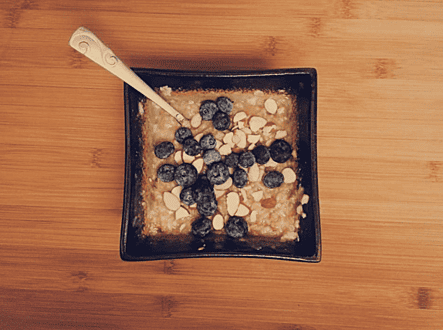Calories in versus calories out
Written by Andrew Meyer
Diets all follow calorie consumption for weight loss
The world has been exposed to a wide array of diet plans, which even include some gimmicky quick fixes, but the basic formula for weight loss is now lost in the crowd.
Nobody asks the question “Why am I gaining weight” anymore. All our weight-related questions are answered as: Eat this but not that, cut down on this, completely avoid that, eat this with this at this time, and don’t eat this with that and so on.
Most fad diets entail a very complicated, confusing and not to mention, restrictive plan. But weight loss was never meant to this complex, it’s just a simple mechanism that focuses on calories in and calories out. Let’s go back to the basics first.
What is a calorie?
The simplest way of defining a calorie is that it is a measure of energy.
We talk about energy all the time but what is energy anyway? Energy is something the human body requires to do everything. You need energy to move furniture, lift a baby and run a marathon. You also need energy to breathe, to think, for your heart contractions, to blink, to transmit messages via your neurons etc. Even when you look at things at a molecular level, you’ll see that there are chemical reactions that take place all the time in your body and these reactions need energy too. Calories are energy; you need calories for all of the above-mentioned processes.
Calories in
Everything you eat and drink, with the obvious exception of water, consists of a certain amount of calories that add up to make your day’s calorie intake. Since you’re taking these calories into your body, they’re called “calories in” for simplicity.
Calories out
The energy your body uses is the calories going out. You’re burning this energy and using it up, like how wood burns in a fireplace. And you’re not only burning calories while working out; even processes such as digestion use energy so this needs to be taken into account while deciding foods that you should be eating.
Calories in versus calories out
You burn more calories through digestion while having a leafy green salad compared to what we like to call, “melt in your mouth” foods, such as cake, that require no effort to consume. You don’t have to chew much and your digestive system doesn’t have to do a lot of work to process it because it’s already processed excessively. Work requires energy, energy is calories and not many calories are burnt while having refined junk.
Since your body is burning calories all the time, it’s probably using up a lot of energy. However, most people consume more calories than they expend. The remaining calories that are not used are then stored in a form that can be used later. You cannot destroy energy, you can only convert it. Therefore, your body will convert this extra instant energy into storable energy, aka fat.
Your body is very complex...
There are emotions, hormones and environmental factors that affect how many calories you consume and how much you burn. For example, a slice of bread may contain anywhere around 66 to 70 calories and an apple contains around 100 calories. An apple would make a much better meal, despite the number of calories it contains because it’s kinder to your digestive system and more nutritionally dense.
However, despite the complexities of modern-day weight loss, it’s important that you don’t sway from the basics. Eat more calories than the body can use and the excess will get stored as fat.
Let’s expand the basics of eating fewer calories a little more:
- Choose low calorie foods and control your portions. You don’t need that second helping.
- Avoid liquid calories such as sugar-sweetened drinks, soft drinks etc., lattes etc.
- Drink plenty of water (especially before eating) as it improves metabolism and keeps you full.
- Increase your calorie output by working out. Try high intensity interval training.
- Try to be as active as possible and minimize couch time. Even the tiniest tasks add up when it comes to your calorie output.
- Find an active hobby you like. Gardening, window shopping or morning walks are great examples.
- Record your progress regularly to know where you stand and make necessary adjustments.


